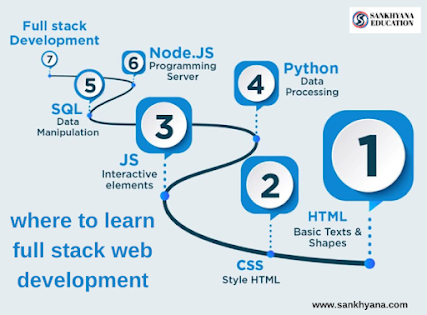The Significance of SAS in the Data Analytics Landscape
The Significance of SAS in the Data Analytics Landscape
In the dynamic realm of data analytics, where information is king, businesses and
organizations seek powerful tools to extract meaningful insights and make informed
decisions. One such indispensable tool is the Statistical Analysis System, commonly known
as SAS. With a history dating back to the 1960s, SAS has evolved into a comprehensive
analytics platform, playing a pivotal role in transforming raw data into actionable intelligence.
In this era of big data and advanced analytics, understanding why SAS is important involves
exploring its multifaceted capabilities and contributions to various industries.
1. Versatility in Data Management:
SAS stands out for its robust data management capabilities. It provides a comprehensive
suite of tools for data integration, data quality, and data governance. SAS allows users to
seamlessly manage, clean, and organize vast datasets, ensuring that the data used for
analysis is accurate and reliable. This versatility is crucial in today's data-driven environment,
where the quality of insights depends on the quality of data.
2. Advanced Analytics and Modeling:
SAS is renowned for its advanced analytics and modeling capabilities. It supports a wide
range of statistical techniques, machine learning algorithms, and predictive modeling.
Organizations leverage SAS to build sophisticated models that can forecast trends, identify
patterns, and make predictions. This predictive analytics aspect is particularly valuable for
businesses looking to stay ahead of the competition by anticipating market changes and
customer behaviors.
3. Business Intelligence and Reporting:
SAS provides robust business intelligence (BI) and reporting tools that empower users to
create visually compelling reports and dashboards. These tools facilitate the communication
of complex analytical findings in a comprehensible manner, enabling decision-makers to
understand insights quickly and act on them. Effective BI is essential for driving strategic
decisions and optimizing business processes.
4. Regulatory Compliance and Risk Management:
In industries such as finance, healthcare, and telecommunications, compliance with
regulations is paramount. SAS offers solutions that help organizations adhere to regulatory
requirements and manage risks effectively. Its analytics tools assist in detecting anomalies,
identifying fraud, and ensuring data security and privacy, making it an essential ally for
industries operating in highly regulated environments.
5. Scalability and Integration:
SAS is designed to scale with the growing needs of organizations. It seamlessly integrates
with other technologies and platforms, allowing businesses to incorporate SAS into their
existing ecosystems. This scalability is crucial for enterprises dealing with massive volumes
of data and evolving analytical requirements, ensuring that the analytics infrastructure
remains agile and adaptable.
6. Time and Cost Efficiency:
SAS accelerates the analytics lifecycle by automating various processes, reducing the time
and effort required for data preparation, analysis, and reporting. Its efficiency translates into
cost savings for organizations, making it an attractive choice for businesses seeking to
optimize their resources while maximizing the value derived from their data.
7. Training and Community Support:
SAS has established itself as a leader in the analytics space, and as a result, there is a
wealth of resources available for users. Training programs and certifications enable
individuals to develop expertise in SAS, while a vibrant community provides support and
knowledge sharing. This ecosystem enhances the accessibility and usability of SAS,
ensuring that organizations can effectively harness its capabilities.
Conclusion:
In conclusion, SAS's importance in the data analytics landscape is undeniable. Its versatility,
advanced analytics capabilities, business intelligence tools, regulatory compliance support,
scalability, efficiency, and the robust community around it collectively contribute to its
significance. As organizations continue to navigate the complexities of big data, SAS
remains a reliable and powerful ally, enabling them to turn raw data into actionable insights
that drive success and innovation.
.png)

.png)
.png)
Comments
Post a Comment